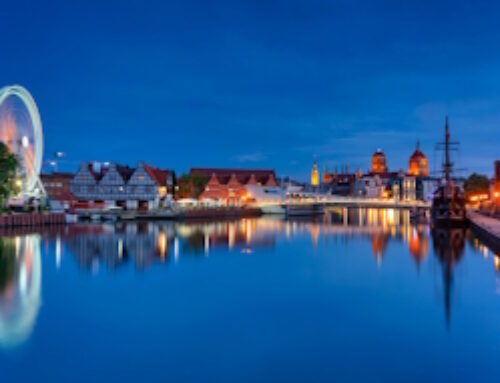CW: Swearing
Name: Karina
Day/Time: Friday, 9:03 p.m.
Current state of mind: Chill & a teensy bit buzzed
What are you wearing? White jeans, navy blue tank top & a silver cardigan
What are you listening to? Nowy ty, nowa ja by Sylwia Grzeszczak
What are you drinking? Strawberry sangria
Where are you? Sunroom
Hey there, it’s Karina and I’m back doing another takeover. Lucky me. But I’m not going to sit here bitching and moaning about it all night. Instead, I’m going to teach you some Polish. Tonight, I’ll be writing up a quick translation guide of common Polish words. You might’ve seen these terms in past blogs, you might see others in future blogs, and some are just good to know.
Originally, we weren’t going to do a translation guide. Honestly, we didn’t see the point since most people can look up the definitions on the Internet. But then, we realized that the Internet was wrong—well, it’s not always wrong, but it’s not always right. Mind-blowing, I know.
Anyway, the Internet is rife with misinformation and that includes online translation software—which has its own pitfalls. Sure, the software is convenient, but it’s not always accurate. It doesn’t take context into account. It also doesn’t always account for slang, metaphors, idioms, dialect, grammar, gendered nouns, casual conversations, and more.
Also, translation software tends to give you the literal meaning of a word, which can be problematic because not all Polish words have direct English translations. And that’s why I’m here.
But, before I get into the actual translations, there are a couple of things I need to mention. One, this is not a grammar lesson. I’m not going to be going over sentence structure, possessive pronouns, gendered pronouns, or anything like that. Two, some Polish words and phrases have many diminutives and variations. I’m not going to be listing every single one. Maybe Amelia will touch on all that in a future blog, but that’s on her. Not me. Not fucking it. Okay? Cool. Let’s get started.
Family (Rodzina)
Rodzice – Parents.
Mama – Mom. This is what most people call their moms. This is what I call my mom—along with a few other choice words that won’t be mentioned.
Mamusia – Mommy. Sweet. Endearing. Loving. Mamusia is used by people of all ages, not just kids. It often conveys that you have a close-knit relationship with your mom.
Matka – Mother. Something that translation software fails to mention is that calling your mom “matka” can be considered rude and disrespectful. Some moms will take offense to this. It conveys a message that the relationship is strained, or that you’re not very close with your mom. Use it with caution.
Tata – Dad. This is what most people call their dads. It’s what I call my dad, whenever the hell I see him—which is almost never. But that’s another story for another day.
Tatuś – Daddy. Sweet. Endearing. Loving. It conveys a tightknit relationship between you and your dad. And it’s also used by people of all ages, not just children.
Ojciec – Father. You know what most dads don’t like to be called? Ojciec. I’ve never addressed my dad this way. My friends have never addressed their dads this way. Lexi has never addressed her dad this way. It can come off as rude and disrespectful, much like Matka. Proceed with caution.
Dziecko – Child.
Dzieci – Children.
Syn – Son.
Synek – Youngest son, the baby boy of the family.
Córka – Daughter.
Córeczka – Youngest daughter, the baby girl of the family.
Brat – Brother.
Braciszek – Little brother and/or baby brother.
Siostra – Sister.
Siostrzyczka – Little sister and/or baby sister.
Babcia – Grandma.
Dziadek – Grandpa.
Ciocia – Aunt.
Wujek – Uncle.
Kuzyn – (Masculine) Cousin.
Kuzynka – (Feminine) Cousin.
Relationships/Dating
Chłopak – Literally means boy, but this is what we call our boyfriends.
Dziewczyna – Literally means girl, but it’s how people refer to their girlfriends.
Narzeczona – (F) Fiancée.
Narzeczony – (M) Fiancé.
Mąż – Husband.
Żona – Wife.
Kolega – (M) Friend. Kumpel and przyjaciel are also synonymous with friend, except kumpel is more like buddy and przyjaciel is more like a close friend.
Koleżanka – (F) Friend. Kumpela and przyjaciółka also mean friend, although I’ve never used kumpela in my life.
Znajoma – (F) Acquaintance.
Znajomy – (M) Acquaintance.
Pet Names/Terms of Endearment
Quick note: there are a ton of pet names and many of those pet names have several diminutives and variations. I’m not going over them all.
Aniołek – Angel. Aniołku is another variation of angel.
Drogi – (M) Dear.
Droga – (F) Dear.
Drodzy – (Neutral, plural) Dears.
Kochanie – (Neutral) Love. This is how Nick and I address each other directly sometimes. Ex: Część, kochanie. (Hello, love.) Kochana and kochany can also be used in this instance, but kochanie is the most common and most popular.
Kochana – (F) Love. Loved one. This is how Nick would speak about me to someone else. Ex: Ona jest moja kochana. (She is my loved one. She is my love.). And just like I mentioned above, he can use kochana to address me directly.
Kochany – (M) Love. Loved one. This is how I would speak about Nick to someone else. Ex: On jest mój kochany. (He is my loved one. He is my love.). I can also use it to address him directly, but I prefer kochanie. It’s just more natural to me.
Kotek – Kitten. This is Ryan’s pet name for Ash. Koteczek, koteczku, and kotku are a couple of variations.
Mała – (F). Small. Tiny. Maleńka is a variation.
Mały – (M) Small. Tiny. Maleńki is a variation.
Misiu –Teddy bear. This cute pet name—which I might’ve used for Nick a moon or two ago—is usually reserved for men but can be used by all genders. Miśku and misiek are a couple of masculine variations, while miśka and misia are a couple of feminine variations.
Myszka – (F) Mouse. Little mouse.
Myszek – (M) Mouse. Little mouse.
Skarbie – Treasure.
Słoneczko – Sunshine. My grandmother calls me this all the fucking time—and I hate it. Not that she cares.
Common Words and Phrases
Co nowego? – What’s new?
Co słychać? – What’s new? What’s up? How are you? How’s it going?
Część – Hi or hello.
Dobra – Good. Cool. This is most often used in casual conversations, when we’re agreeing with someone or to something.
Dobranoc – Good night.
Dobry wieczór – Good evening.
Dziękuję – Thank you.
Dzięki – Thanks.
Dzień dobry – Good day. Good morning. Formal way of saying hello.
Hej – Hey. Hi.
Jak leci? – How’s it going?
Jak tam? – What’s up? How are you? How’s it going?
Jak tam leci? – How’s it going? How are you? What’s going on?
Jasna – The direct translation means light. But when it comes to conversation, it means sure. We typically use this when agreeing with someone. Jasne is another common variation.
Kasa – Cash. Cashier.
Na zdrowie – To your health (literal). Cheers! We also say this after someone sneezes.
Na razie – For now (literal translation). See you later. Talk to you later. This is just an informal way that we say goodbye to each other.
Nie – No.
No – Okay. Yeah. Mm-hmm. Sure. No is an informal way of saying yes.
Pa – Bye. This is an informal way of saying bye. It’s most often used in phone conversations.
Przepraszam – Sorry. Excuse me.
Serio – Seriously.
Siema – What’s up? How are you?
Sorry – Sorry (informal/slang). Yes, we use sorry, except we roll the r’s.
Spoko – Peace. Calm. Calm down. Chill out.
Sto lat – 100 years. May you live to be 100 years old. This is how we wish people a happy birthday, happy anniversary, and a happy wedding day. Sto Lat is also our birthday anthem, but it’s also sung at anniversary parties and weddings as well.
Tak – Yes.
Wszystkiego najlepszego – Best wishes.
Swearing and Insults
Quick reminder that not all swear words have direct English translations. There are also a ton of swear words with lots of variations in the Polish language, but I’m just hitting the basics today.
Cholera – Damn.
Cholera jasna – Goddamn it. Holy shit. Bloody hell.
Chuj – Dick.
Chujek – Little dick.
Chuje – A group of dicks.
Dupa – Ass. This isn’t a swear word, but it’s common and used quite frequently.
Dupa jaś – Jackass.
Ja pierdolę – Fuck me. Fucking hell. It’s most often used when you’re shocked or stunned or frustrated or angry. I say this a lot. So does Ash.
Jebaniec – Fucker.
Kurwa – Fuck. Whore. This is one of the most common swear words in the Polish language and it’s one my favorites. Some days, I use it like a comma—and rightfully so.
Pierdolony – Fucking. Fucked up.
Pierdol się – Go fuck yourself.
Pocałuj mnie w dupę – Kiss my ass.
Pojebany – Fucked up.
Skurwysyn – Motherfucker. Son of a whore.
Śmieć – Trash.
Spierdalaj – Fuck off.
Suka – Bitch.
Szmata – It literally means rag, but as an insult it’s the equivalent of cunt. Use caution when slinging this insult, because you’ll likely get your ass kicked to kingdom come and beyond. Just saying.
Wypierdalaj – Get the fuck out.
Food and Drinks
Flaki – Tripe soup. I fucking hate it, thanks. 🤢🤮 (Sorry, Babcia).
Gołąbki – Stuffed cabbage. Gołąbek is the singular form of the word.
Grzaniec – Mulled beer or mulled wine. My two favorite drinks during the winter months, though, I prefer mulled wine over beer.
Herbata – Tea.
Jeżynówka – Blackberry brandy.
Kawa – Coffee.
Krokiety – Polish croquettes typically stuffed with meat and/or mushroom and onion. Other fillings are also used.
Naleśniki – Crepes that are filled with fruity, cheesy, or savory fillings.
Nalewka – Homemade liqueur. Distilled alcohol or Spirytus is infused with fruit, syrup, and spices. Common flavors are blackberry, cherry, raspberry, honey and lemon, and apple pie (my personal favorite).
Pączki – Donuts filled with homemade jam or custard. Pączek is the singular version.
Paszteciki z pieczarkami – Pasties stuffed with mushrooms. They can also be filled with kapusta (sauerkraut), meat, and/or other fillings. Pasztecik is the singular form.
Pierogi (Plural) – Dumplings filled with cheese, potatoes, meat, mushrooms, blueberries, kapusta and/or other fillings. Pierog is the singular version.
Piwo – Beer.
Spirytus – This is a rectified spirit (it says so right on the label). It is not the world’s strongest vodka, but it is one of the strongest spirits in the world. You’re not supposed to drink it neat or straight—not unless you feel like damaging your esophagus, damaging your organs, and/or enjoy the fucking taste of jet fuel.
Szarlotka – Apple cake which is similar to apple pie. It’s one of Nick’s favorite desserts, which is why I need to learn how to make it.
Wino – Wine.
Wódka – Vodka. Wóda is the slang version.
Woda – Water.
Zapiekanki – Open-faced sandwich melts made on buttery baguettes. They’re usually topped with some kind of meat, melted cheese, mushrooms, onions, and/or other veggies and ketchup. They are delicious and one of my favorite foods. I make these at least once a week.
And that’s a wrap. Thanks for spending your Friday night with me. If you have any questions or comments, feel free to drop them down below and I’ll get back to you as soon as I can. I hope you have a happy and relaxing weekend. Stay safe out there.
Until next time,

P.S.: A very special thank you to Amelia’s mom for proofreading this blog. 💖
https://open.spotify.com/playlist/5MeB6N5EuL3kILabbtv0Kt?si=0a4b413b5f3641fd
© Copyright 2024 Amelia Kayne | All Rights Reserved





I had no idea that no meant yes!
Are you two going to do another takeover?
People always get surprised by that one. 😊
Yes, probably sometime later this year.
I see you omitted żabko i robaczku, hahaha — Not that I blame you, who wants to be called a frog or worm, hahahaha🤪😜
BTW, I fucking looooooove that you called Nick misiu!!! 😍😍😍
Nobody I know and that is why I omitted them, lol 😂
I usually call him kochanie, but every once in a while misiu just slips past my lips. 😅🥰
I love that it just “slips” past your lips, hahaha!!! 😜Does Nick ever get mad when you call him misiu???
BTW, I fucking love your memes!!!
Karina: No, not that I’m aware of. Nick’s usually pretty open about his feelings and I’m pretty sure he would tell me if he didn’t like it…
Nick: I would tell you, if there was something to tell. But there isn’t. I’m not mad, sweetheart.
Karina: Good. 😘 What memes, Kas?
Ahhhhh, you two are the fucking cutest!!! 🥰😍Total couple goals!!! 😍🔥😍🔥
Your Pinterest boards, hahaha!! 😜 “Some people just need a high-five in the face. With a chair.” Hahahaha 🤣😜 Was that directed at someone??? 👀😜
Nick, you Ryan and Stavros have the *BEST* ones, hahaha 😜🤣
Dzięki! 😘
Gotcha!! I was wondering what you were talking about for a hot second, lol…. You know what they say, “if the stiletto fits, then wear it.” 😉
Nick: Glad you’re entertained, Kas. 😉
I think I know who you’re talking about, hahaha!! 😜😂
Oh, I am very entertained, hahaha!!!😝😜 You guys NEVER disappoint!!! 😘
I’m pretty sure you do, lol 😂
Nick: Happy to be of service 😉